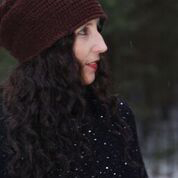Diadems
She hadn’t forgotten the moment. The moment was always right in front of her, a gleaming diadem she tried to forget. That practice of going further into the moment, deeper into that abyss was a practice she had pushed aside in favor of invention. But why, she asked herself? Is it because clasped in the arms of this moment was a nullifying poison? She had tried, but failed, on many occasions to reason with this sickening center. The center of the moment grew bold and pierced her other more minor catastrophes so that she might see it. But she turned her head away as if it were the cone of a flower. In protest the moment exploded, emptied itself, spoke endlessly, wrapped itself around each of her straying thoughts. Yet she was sublimely practiced in disentangling herself from the real, even as she diligently completed any necessary task. Sometimes she asked herself: What is it in this moment I cannot accept? And what is it in this moment I can absolutely rely upon?
Bibliotherapy
The office was musty and she adored the smell. She drew the shades and locked the door, cleared stacks from the long black chaise, placed them carefully on the desk and began to cull books for her session. With a new book published every thirty seconds it can be hard to know where to start. The novel cure involves consultation with one of our bibliotherapists, interviews and questionnaires and culminates with literary remedies prescribed for your individual needs. The sentence repeated in her head and caught in her throat. She was finished with all that. She had long ago learned to read in inappropriate places. She had disposed of the words: enchant, enrich, and inspire. I am not at liberty to reveal the titles of all of the books she pulled that day but I can tell you bluntly that she favored both thick, cloth bound editions (for their weight) as well as the smallest, wispiest books. She was careful to choose titles from various time periods and required multiple tongues. She chose both hilarious satires and transporting multi-layered narratives. Today she was particularly determined to locate saturnine ghosts. Once she had procured several piles, which took less than the space of half an hour, she carefully arranged them on the carpet next to the chaise. Then she turned off the light, keeping only a small lamp illuminated. She took off her hat, gloves and shoes and reclined on the chaise. She began with her ankles, upon which she placed a midweight antiquated volume on herbology. Under her knees she tucked many soft, illustrated bestiaries. On her thighs she placed romance and mystery. On her belly she piled a stack of current periodicals. Carefully, so as not to disarrange the volumes already placed, she lifted her hips to place dramas in the small of her back. Atop each shoulder she arranged a heavy encyclopedic volume, and under her head a massive astronomical tome. Then she closed her eyes and covered her face with a handsewn chapbook open just so, like a large moth. She closed her eyes and remained very still, until she began to feel the language inside her soften, until the gormless dissolved, until gothic overtones rose to the surface, fell and expired into the theatrics supporting her, until her breathing became a succession of cures. What is literature for?
 Laynie Browne would like to live in a world in which poetry invents and invites realities we want to inhabit.
Laynie Browne would like to live in a world in which poetry invents and invites realities we want to inhabit.